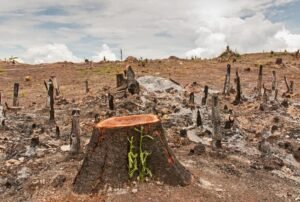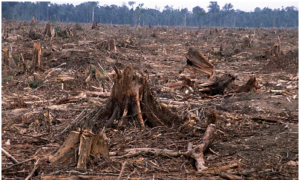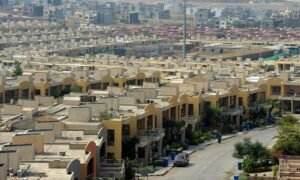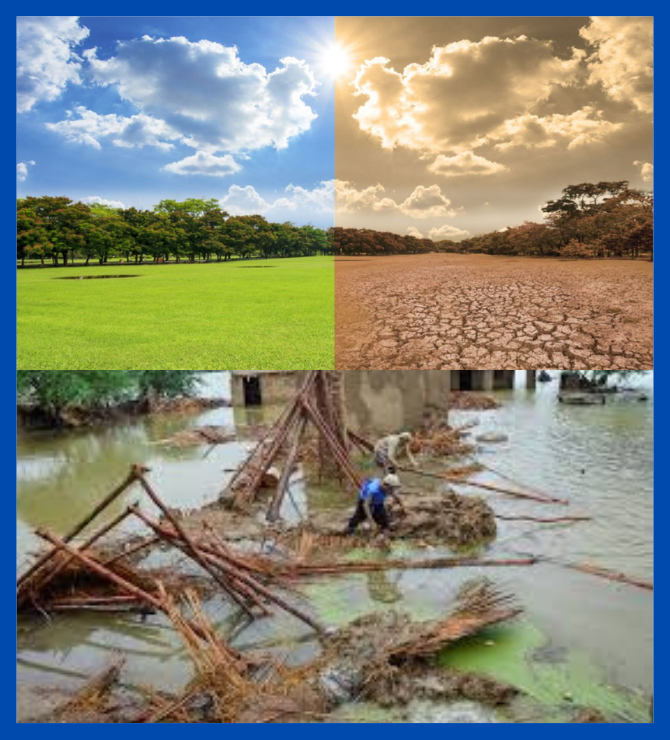Report : Saeed Ul Haq
Pakistan Is Added to the List of Countries Around the World Struggling with the Effects of Climate Change
Pakistan is the most recent nation to join the expanding club of countries that are currently dealing with substantial climate change impacts as a result of adjustments in the environment. Since the country gained its independence, it has struggled to overcome a variety of obstacles, many of which are attributable to the clearing of its forests and the erosion of its hilly regions.
Globally, 2.1 billion people lack access to clean water to drink. PCRWR
In days gone by, Pakistan experienced each of the four distinct seasons, namely winter, summer, autumn, and spring. This rhythm, however, has been thrown off by climate change, which has caused shifts in each of the four seasons. It has become increasingly common to see temperatures that fluctuate, and there has been a notable increase in the overall amount of heat, which poses a significant risk to agricultural crops. Rainfall that is both unexpected and untimely has added another layer of complexity to the threats that the agricultural industry faces.
and there has been a notable increase in the overall amount of heat, which poses a significant risk to agricultural crops. Rainfall that is both unexpected and untimely has added another layer of complexity to the threats that the agricultural industry faces.
Commitment of Pakistan to Overcoming Obstacles Caused by Climate Change on the International Stage
In order to address the issues that Pakistan is facing with its environment and bring attention to the problems that are being caused by climate change, officials and ministries from the Pakistani government have been participating actively in international forums.
Efforts to Tackle Environmental Damage Caused by Illegal Housing Societies Discussed by Standing Committee
The various dangers that Pakistan is currently facing as a direct result of climate change have been highlighted in reports that have been submitted at the United Nations.  Flooding across a large area was brought on by unseasonable rainfall, which was responsible for the loss of thousands of acres of crops. In addition, the Twin Cities, which used to be an example of a steady weather pattern with temperatures ranging between 38 and 40 degrees Celsius, are currently experiencing a total shift in that trend. Housing societies, both legal and illegal, have played a key part in worsening the damage done to the environment, which has led to effects that are irreparable.
Flooding across a large area was brought on by unseasonable rainfall, which was responsible for the loss of thousands of acres of crops. In addition, the Twin Cities, which used to be an example of a steady weather pattern with temperatures ranging between 38 and 40 degrees Celsius, are currently experiencing a total shift in that trend. Housing societies, both legal and illegal, have played a key part in worsening the damage done to the environment, which has led to effects that are irreparable.
Housing Societies That Are Not Regulated Contribute Significantly to Environmental Degradation
Housing societies in Pakistan, both those that are legal and those that are not, have been a contributor to the escalation of environmental degradation. Legal housing societies have contributed to the problem by taking advantage of regulation that is too lax and working together to exceed the limitations that have been permitted.  Surprisingly, after they have granted No-Objection Certificates (NOCs), government officials and inspectors rarely return to these sites, leaving them vulnerable to environmental damage that is neither monitored or controlled.
Surprisingly, after they have granted No-Objection Certificates (NOCs), government officials and inspectors rarely return to these sites, leaving them vulnerable to environmental damage that is neither monitored or controlled.
Encroachments Pose a Severe Threat to Margalla Hills. IWMB
According to the information gathered from various sources, no organization has carried out post-approval checks on any housing society up to this point. The first step, which entails obtaining a no objection certificate (NOC) from the Environmental Protection Agency (EPA) within Islamabad’s jurisdiction, is an extremely important one. The absence of follow-up inspections, on the other hand, enables housing societies to carry on with their operations, which results in the destruction of a large number of trees, plants, and green spaces due to the widespread leveling of the land by bulldozers.
Concerns about the effects of climate change are heightened when illegal housing societies are not monitored.
Illegal housing societies in Pakistan, which operate without the required licences or NOCs, further worsen the country’s vulnerability to the effects of climate change.  These unauthorized settlements engage in actions that are detrimental to the environment and cause widespread deforestation, both of which have a negative impact. Surprisingly, the Environmental Protection Agency does not appear to be actively involved in these places, and as a result, the problem is not being appropriately addressed. Concerns regarding an escalation in the rate of climate change in Pakistan have been raised as a result of the unrestrained felling of trees, the installation of machinery, and the environmental upheaval that has resulted from these activities. The nation could be subjected to the most severe repercussions of climate change if prompt action is not taken to put an end to these unlawful actions, which would have a substantial impact on crop output and the availability of key commodities.
These unauthorized settlements engage in actions that are detrimental to the environment and cause widespread deforestation, both of which have a negative impact. Surprisingly, the Environmental Protection Agency does not appear to be actively involved in these places, and as a result, the problem is not being appropriately addressed. Concerns regarding an escalation in the rate of climate change in Pakistan have been raised as a result of the unrestrained felling of trees, the installation of machinery, and the environmental upheaval that has resulted from these activities. The nation could be subjected to the most severe repercussions of climate change if prompt action is not taken to put an end to these unlawful actions, which would have a substantial impact on crop output and the availability of key commodities.











